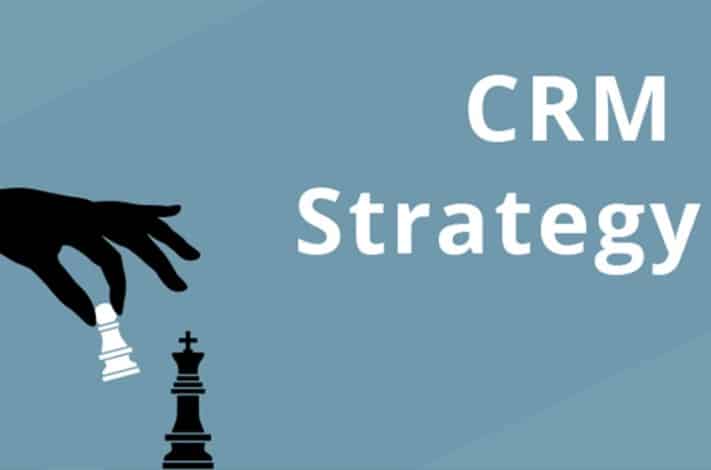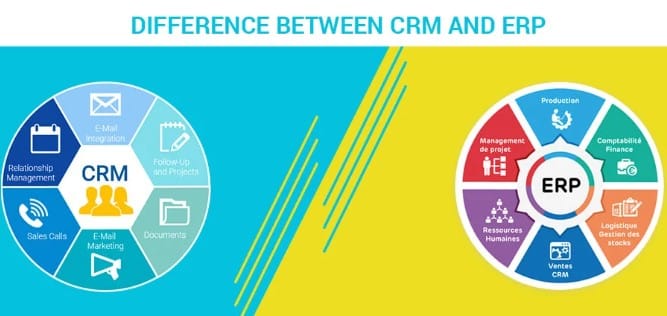Customer Relationship Management (CRM) – In the world of business, leads are the lifeblood that keeps companies thriving.
Generating leads is essential, but managing them effectively is equally crucial to achieve business growth and success.
Customer Relationship Management (CRM) systems have become indispensable tools for businesses, and they offer various ways to streamline lead management. In this article, we will explore ten effective ways to use CRM for better lead management.

What is CRM?
CRM stands for Customer Relationship Management. It is a technology that enables businesses to manage interactions and relationships with current and potential customers.
CRM systems help companies organize, automate, and synchronize sales, marketing, customer service, and support activities.
With a CRM in place, businesses can gain insights into their customers, understand their needs, and provide personalized services.
Why is Lead Management Important?
Lead management is the process of capturing, tracking, and nurturing potential customers (leads) throughout their journey in the sales funnel. Effective lead management is vital for several reasons:
- It ensures that no leads fall through the cracks, increasing the chances of converting prospects into customers.
- Proper lead management helps businesses focus their efforts on the most promising leads, maximizing efficiency and productivity.
- By nurturing leads with targeted content, companies can build stronger relationships, increasing the likelihood of conversion.
- Lead management enhances collaboration between sales and marketing teams, fostering better communication and alignment.
10 Ways to Use CRM for Better Lead Management
4.1. Centralize Lead Data
One of the primary advantages of using CRM for lead management is that it centralizes all lead data in one place.
This means that all information related to leads, including contact details, communication history, and interactions, can be easily accessed and updated by authorized team members.
Centralization prevents data silos and ensures that everyone is on the same page.
4.2. Automate Lead Capture
CRM systems offer automation capabilities for lead capture, making it convenient to gather information from various sources such as website forms, social media, and landing pages.
Automation saves time and reduces manual data entry errors, ensuring that leads are promptly entered into the system.
4.3. Segment Leads for Personalization
Personalization is key to successful lead nurturing. With CRM, businesses can segment leads based on various criteria, such as demographics, behavior, and interests.
By tailoring content and communication to specific segments, companies can deliver more relevant and engaging experiences to their leads.
4.4. Nurture Leads with Email Campaigns
Email marketing remains a powerful tool for lead nurturing. CRM systems enable businesses to create targeted email campaigns based on lead segments.
These campaigns can include personalized content, product recommendations, and promotional offers, increasing the chances of converting leads into customers.
4.5. Schedule Follow-ups and Reminders
Prompt follow-ups are essential to keep leads engaged and interested. CRM allows users to schedule follow-up tasks and set reminders, ensuring that no lead is forgotten or neglected. This proactive approach enhances lead conversion rates.
4.6. Monitor Lead Engagement
CRM provides valuable insights into lead engagement. Businesses can track email opens, link clicks, website visits, and other interactions.
This data helps in gauging lead interest and identifying warm leads that are more likely to convert.
4.7. Analyze Lead Behavior and Trends
Understanding lead behavior is vital for effective lead management. CRM systems offer analytics and reporting features that allow businesses to analyze lead behavior and identify trends. This information can be used to refine lead nurturing strategies and improve overall conversion rates.
4.8. Collaborate with Sales and Marketing Teams
CRM fosters collaboration between sales and marketing teams. Both teams can access lead data, share valuable insights, and coordinate efforts seamlessly.
Collaboration improves lead handoff processes and ensures a more coherent customer experience.
4.9. Integrate CRM with Other Tools
Many businesses use various tools and platforms to support their marketing and sales efforts. CRM systems can be integrated with these tools, such as email marketing platforms, social media management tools, and customer support systems. Integration streamlines workflows and optimizes lead management processes.
4.10. Measure and Improve Lead Conversion Rates
CRM provides data on lead conversion rates and performance metrics. By tracking these metrics, businesses can identify areas that need improvement and optimize lead management strategies to enhance overall conversion rates.
The Benefits of Effective Lead Management
Effective lead management brings numerous benefits to businesses. Some of the key advantages include:
- Increased conversion rates and revenue
- Improved customer satisfaction and loyalty
- Enhanced sales and marketing alignment
- Greater efficiency and productivity
- Valuable insights into customer behavior and preferences
Conclusion
In conclusion, CRM systems are invaluable tools for better lead management. By centralizing lead data, automating lead capture, and personalizing interactions, businesses can nurture leads effectively.
Tracking engagement, analyzing behavior, and collaborating between teams further optimize lead management.
By leveraging CRM effectively, businesses can boost their conversion rates and build stronger customer relationships.
Read More :
- Maximizing Your CRM Potential : Tips for Better Data Management
- Mastering CRM: 10 Essential Tips for Business Success
- The Synergy Between CRM and Marketing Automation
- How to Use CRM to Improve Customer Experience
- CRM in the Age of Social Media: How to Use Data to Connect with Customers
- The Future of CRM: What You Need to Know
- Customer Retention 101: Using CRM to Keep Your Clients Happy
 Pmbmalahayati.id Media Informasi Terupdate Masa Kini
Pmbmalahayati.id Media Informasi Terupdate Masa Kini





